In high school if you had asked me if I was Christian, I would have said, "Yes." But if you had challenged me for what I said I believed in, chances are it would have ended in a fight. I didn't understand what being a Christian meant.
LOOKING FOR HOME
Growing up around Valentine, Nebraska, I had no real influence of a higher power. The greatest influence in my life at the time was alcohol. Alcohol was involved in most of my problems—and my family's. There were times we didn't have food, running water, or electricity. Sometimes we didn't even have a place to stay and just lived on the street.
It's no surprise that I ended up in a foster home, which seemed like paradise at first—food in the kitchen, 30 bikes of all different colors, a basketball court—but it wasn't home to me. I wasn't used to the structure and the rules, and I didn't listen. I'd just tell my foster parents, "You ain't my mom!" And I was too young to realize why my real mom couldn't visit me.
The foster home was only half a block away from the trailer I had once called home. I walked home to that empty trailer one day. Since nobody was home, I walked across town to my grandparents'. I was expecting some hugs and kisses from grandma, and some pumpkin pie or something. But when I walked in, she was upset and told me I couldn't stay, and that I wasn't supposed to be there. Eventually the cops showed up and took me back to the foster home. And I was mad.
I was expecting some hugs and kisses from grandma ...
But when I walked in, she was upset and told me I couldn't stay.
I remember hating my foster parents, and I let them know. I grew more rebellious and aggressive. I went from hating my foster parents to hating everybody. I even started to hate my real mother.
In early high school, I got into an altercation with my foster mother, which landed me in a group home. I was in and out of group homes and the foster home, and eventually went to live with my grandmother.
From that point on, violence would become a way of life.
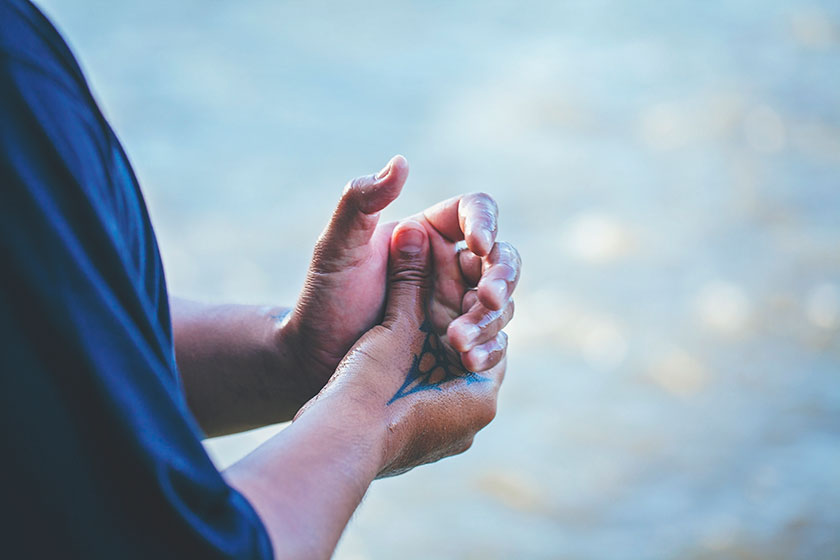
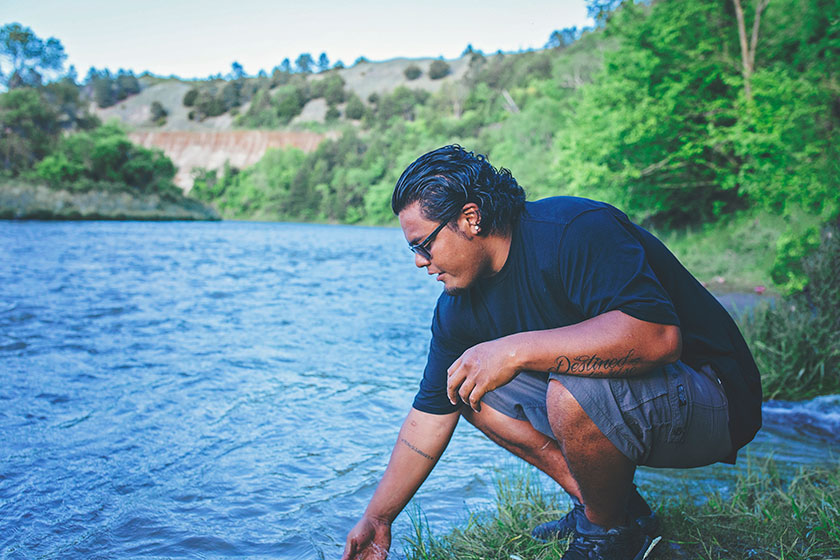
A DARK HOLE
The first time I went to prison, it was for domestic assault on my son and his mother. That was probably the worst relationship I'd ever been in. And it was the angriest I've ever been when she ended things with me. I was punching walls, banging my head, barely sleeping or eating.
It got to the point where I was suicidal. I had been in the hole, or restrictive housing, and felt alone. I was blaming God for everything. I'd hear smiley Christians telling me how great God is; I didn't believe them. I wanted a sign, and I wasn't seeing one.
I was so desperate that I came up with a plan to end my life. Go to the yard. Climb the fence. Let the guard shoot me.
I walked toward the fence with my eyes to the ground and saw this big green caterpillar. It had clearly been stepped on or hit by a lawn mower or something. It was suffering. At the time, I thought maybe God had put that caterpillar there for me to find, in all its suffering and pain, like some sort of joke.
Go to the yard. Climb the fence. Let the guard shoot me.
I already understand suffering just fine on my own, I thought. I started cussing God out. Then I squished the caterpillar in my hand.
I realized there was a big difference between that caterpillar and me. Its suffering was physical; mine was emotional. I broke down and went into a corner, and somehow, I started to pray, Let there be a purpose for suffering. And I had this feeling like maybe I had more to learn.
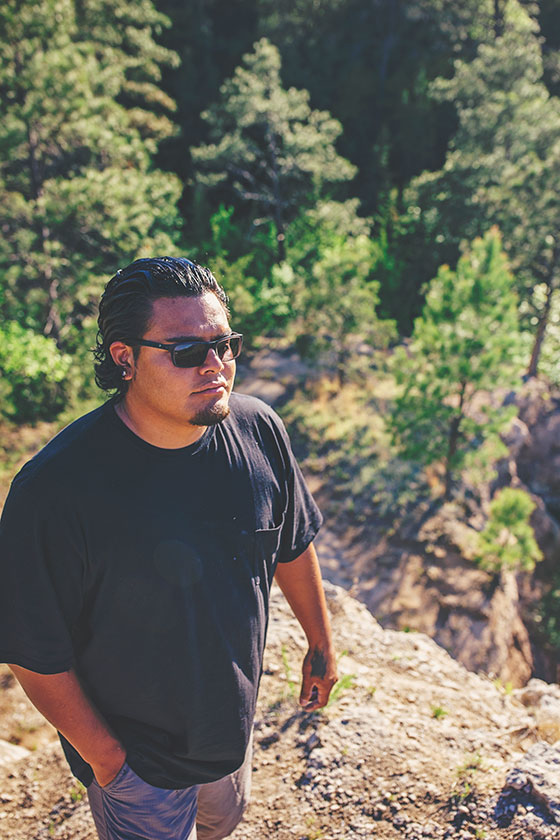
A SIGN FOR OCEAN
I started questioning everything I believed in. Maybe I couldn't control what happened to me—all the circumstances that fueled my anger, violence, and resentment—but what if I could actually control how I reacted in those situations?
If I've been wrong about this one before, what else am I wrong about?
I needed a safe place to ask these questions. Prison Fellowship® was offering a one-to-one mentoring opportunity there in restrictive housing. My mentors, Jeff and Steve, visited me every week to talk about life, faith, doubt, and healing. We read the Bible together and wrestled with hard questions. They were so patient.
As we talked things through, I was still obsessed with discovering some mystical "sign." Finally, Jeff asked me, "Ocean, I have 1,800 people at my church on a Sunday morning. Do you know which of those I've spent the most time with?"
I didn't know.
Jeff replied, "You, Ocean. You are the one I've spent an hour and a half with every week for the past year. How's that for a sign?"
In that moment, I felt like I was on a cliff. I wanted to jump; I just didn't know how. As we started talking about what faith is, my mentors helped me understand that the only thing keeping me from jumping was fear. And I needed to believe in something bigger than myself.
Then Jeff asked me if I wanted to accept Christ into my life, and I said, "Yes." I broke down sobbing. They prayed over me, and I felt everything just release from my shoulders—all the weight, the pain, the anger, the resentment. God had to take it from me.
THE JOY OF THE CLIMB
When I got out of the hole, I still didn't quite know how to socialize, but I didn't care. I had God. He helped me get back into reality. For the first time, I trusted Him. I was open, I was happy, and I was O.K. to smile in front of people. I didn't care what people thought about me, because I knew what God thought about me. I knew who I was.
I joined Bible studies and whatever programs I could find, from anger management to domestic violence recovery.
On June 9, 2015, I was released.
My first day at church on the outside was unbelievable. The songs they played that first Sunday made sense when I thought about my life and my recovery, and it made me cry. I was bawling in church! The people sitting near me put their arms around me, and I realized they were there for me. And that matters. I'd always had people ready to fight me, and that day, I realized these people will fight for me. For my good.
Life on the outside has been harder than I thought it would be. But people have been there for me, loved me, had me over for dinner. They've helped me find a job and grow into my independence. The biggest challenge has been dealing with my old friends, who are stuck in their old ways and don't want to hear about how my life has changed. They laugh when I try to tell them. But I've been learning to love them and forgive them. I've forgiven my mom, too.
Life really is like climbing a mountain. You don't get to the top without some scratches and some scars. I'm not at the top yet, but I'm on a new path. I'm learning how to be a good dad. I'm working and visiting family. I hope to write a book someday. There's this hint of joy in that, you know?
When I got out, I wanted to change the world. Then I realized I can't change everybody, but I can make some difference. And I think the old Ocean would say, "I'm proud of you."
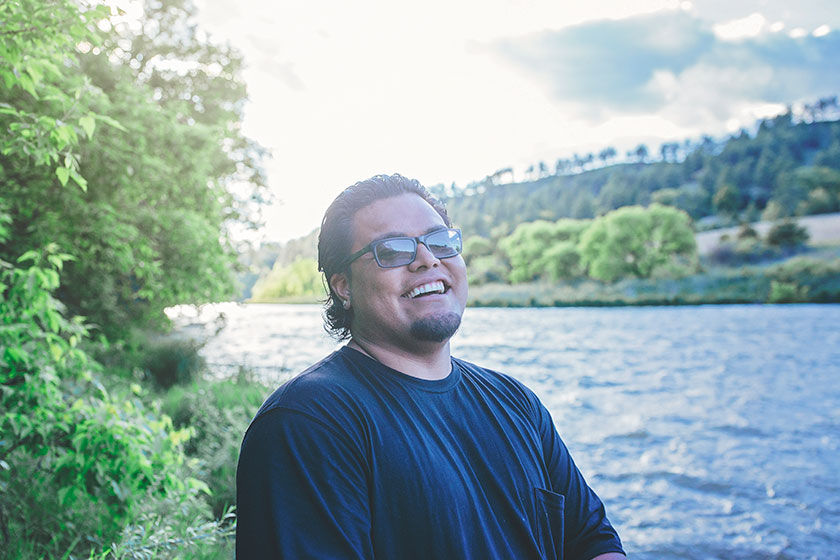
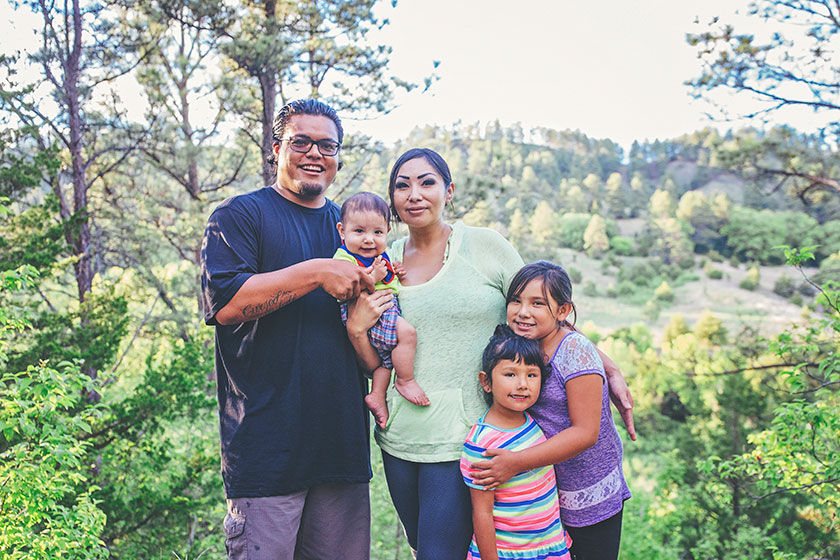
As told to Emily Andrews by Ocean Lehauli
Photography by P&W Photography
DID YOU ENJOY THIS STORY?
Make sure you don't miss out on any of our incredible transformation stories! Sign up to receive our weekly newsletter, and you’ll get great content delivered directly to your inbox.
Your privacy is safe with us. We will never sell, trade, or share your personal information.
SUPPORT THE WORK OF PRISON FELLOWSHIP